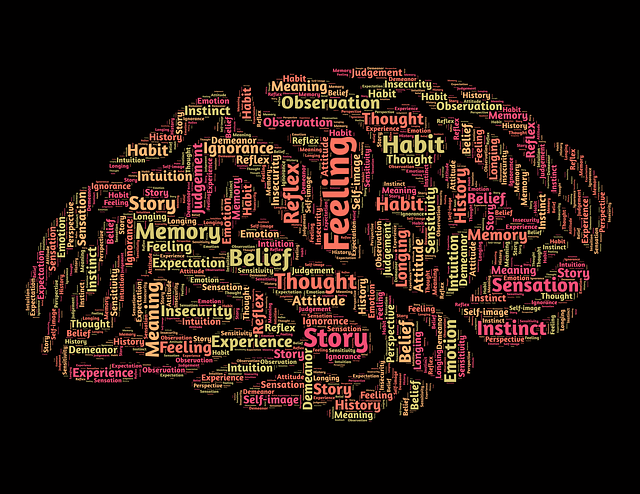
SOURCE: Pixabay.com
Psychology involves scientifically studying the connection between human behavior and the mind. It helps you understand how the people around you interact and act, the emotions they experience, how they reason, and their motivation. It teaches you to comprehend how others react to the environment around them and the key elements that may affect this, including biological, emotional, social, or cognitive.
While people take psychology courses for various reasons, you might have challenges figuring out if it’s the perfect choice. This post discusses seven reasons to study psychology.
1. Qualified psychologists are in high demand
Statistics indicate that overall, psychologists’ employment is expected to see a 6% growth from 2021 to 2031, almost as fast as all occupations’ average. On average, around 14,100 psychologist positions are projected yearly over the decade.
Some of the psychology careers in demand include a career or vocational counselor, family marriage counselor, school psychologist, clinical psychologist, engineering psychologist, forensic psychologist, neuropsychologist, and geropsychologist. A Graduate Diploma in Psychology online is an affordable and flexible way to become a psychologist, especially if your schedule is too tight to attend in-person classes.
2. Explore multiple career possibilities
Studying psychology gives you many career possibilities, allowing you to choose a specialization in a different area in this field. Clinical, developmental, cognitive and perpetual, engineering, community, counseling, educational, environmental, experimental, evolutionary, health, forensic, organizational, industrial, quantitative and measurement, neuropsychologists, rehabilitation, school, social, and sports psychologists are psychology careers you can specialize in.
With the right psychology qualifications, you can decide where to work. You can work independently doing research, working with patients, or consulting with clients. Alternatively, you can join a healthcare team to collaborate with social workers and physicians or work in a school setting or private practice.
3. Understand others and yourself
Studying psychology can help you understand yourself and others. It gives you insights into why they act and reasons why they do. It also enables you to understand your motivations and behavior. It teaches you the internal desires and impulses that drive people.
Based on this understanding, you can develop more empathy towards others. This helps you restrict your prejudice against others who behave differently from you. When you know what motivates others, developing harmonious relationships with the people around you becomes easier. As a psychologist, you can understand your kids better, improving your parenting skills as you learn how to cultivate their growing psyches.
4. Become a good communicator
Studying psychology, primarily cognitive psychology, can help you become an excellent communicator. It increases your communication effectiveness through first impression judgments and attention span. Through the cognitive psychology branch, you understand cognitive fluency, which deals with how easily you perceive details, understand them, and determine what they mean to you. When you apply cognitive fluency correctly, you can improve written and verbal communication.
Cognitive psychology also teaches the art of persuasion. Convincing others to do whatever you’re telling them can be tricky. However, using motivation, explaining why they should do it, giving a solid reason, and asking them to do it can help. You can only achieve all this through cognitive psychology, which enables you to provide these people with a motive, a purpose, and a trigger to take a specific action.
5. Understand human development stages
Psychologists, mainly developmental psychologists, concentrate on changes across a human’s lifespan and growth, including cognitive, physical, social, perceptual, intellectual, emotional, and personality growth. Developmental psychology helps you understand how humans learn, grow, and adapt. Across their lifespan, humans go via different development stages. You’ll know how humans grow, evolve, and adjust at various life stages. As a developmental psychologist, you’ll research to help others attain their maximum potential.
6. Develop your critical thinking skills
Critical thinking is a skill that enables you to learn and interpret the environment around you. It’s vital in psychology because it helps formulate evidence-based arguments. Studying psychology allows you to build and grow this skill successfully.
The critical thinking skills you gain from studying psychology are an essential life skill that helps you make better decisions, develop well-informed opinions, and improve relationships while allowing for creativity. They help create independence, enhance your problem-solving skills, and set up your career for success.
7. Improve your employability
As a psychologist, you have employment opportunities across multiple industries, including social assistance, healthcare, education and training, public administration and safety, academic research teaching, sports and exercise, counseling, forensics, occupational, and more. This different industry mix is favorable for employability growth prospects. With psychology qualifications, you can rest assured that you’ll always be in demand in your industry. This reduces the risk of remaining unemployed.
Endnote
Learning psychology can be quite rewarding. Familiarizing yourself with the benefits of becoming a psychologist can help you decide if psychology is the perfect field to pursue.